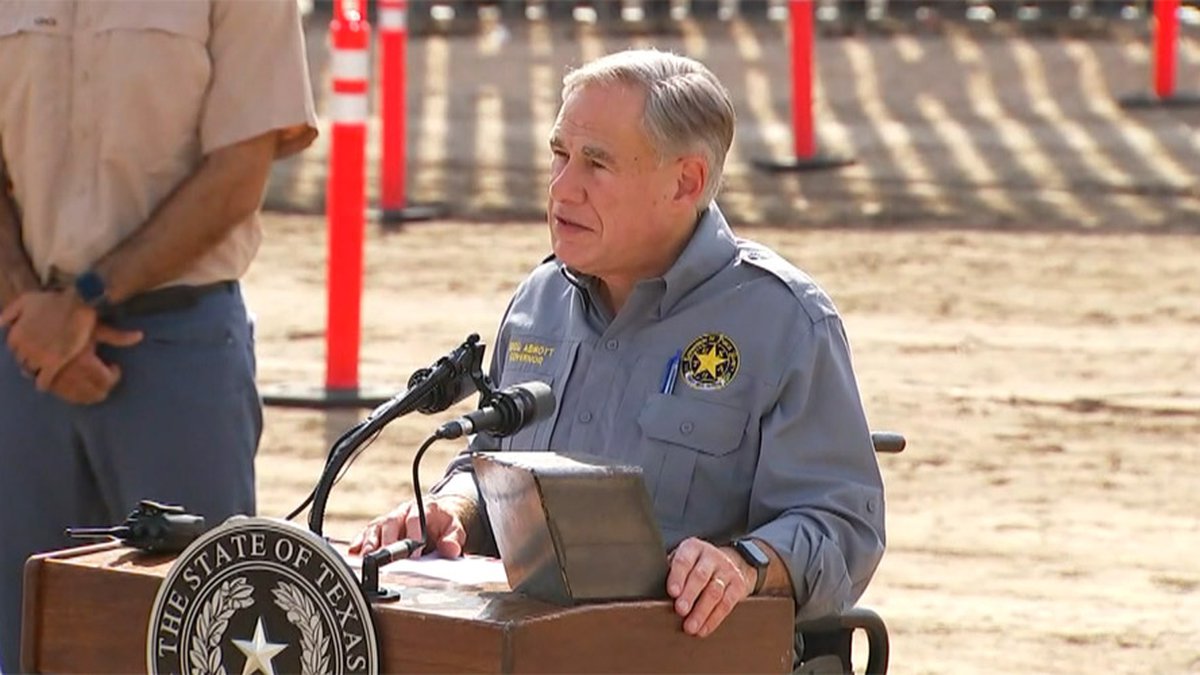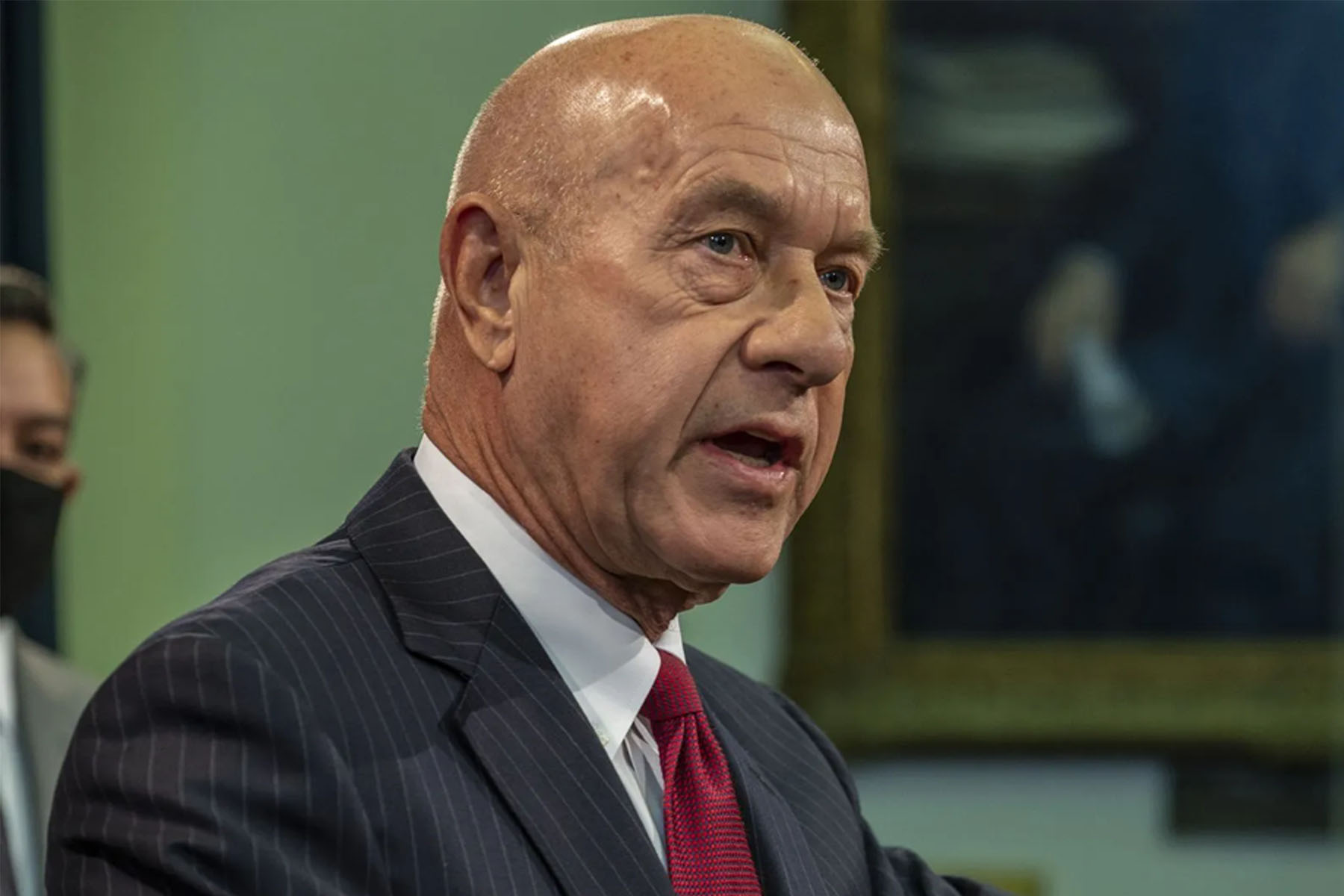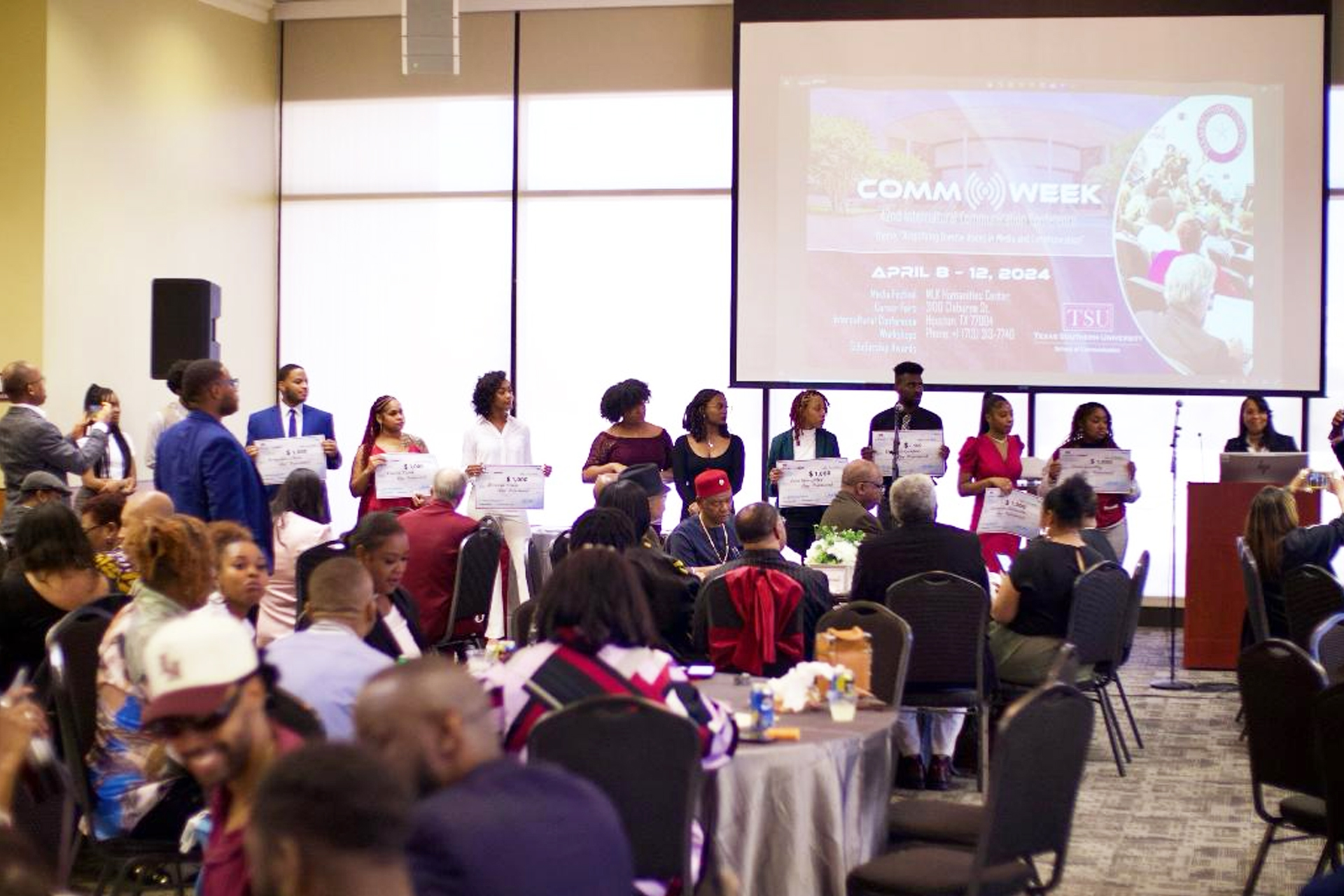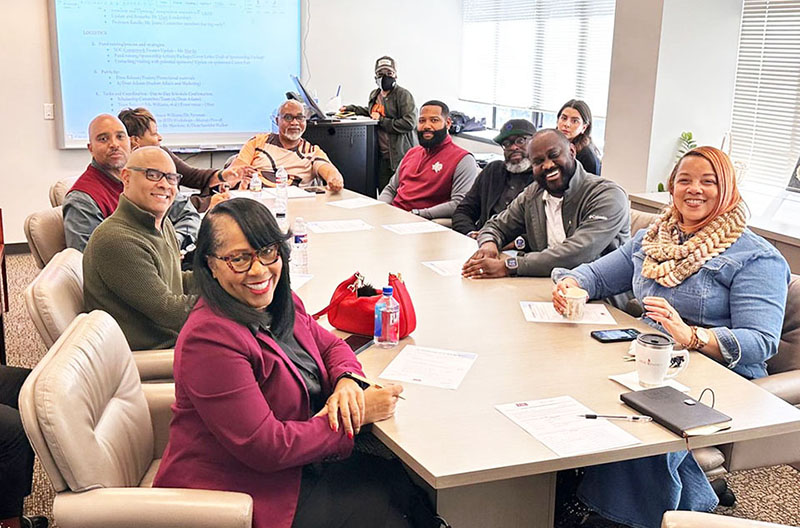Houston
Governor Abbott versus Texas Parole Board: Playing Politics with George Floyd

- Photographer alleges he was forced to watch Megan Thee Stallion have sex and was unfairly fired - April 25, 2024
- Navigating Bias and Ethics in AI-Powered Cybersecurity: The BRACE Framework Approach - April 17, 2024
- Body of O.J. Simpson to be cremated this week; brain will not be studied for CTE - April 16, 2024
Houston
Houston’s Mayor Admits His City Is Broke, Even Firefighters Aren’t Being Paid

The Democratic mayor of Houston recently admitted that his city is suffering from a large deficit because of overspending done by previous administrations. To address the $160 million shortfall, the mayor has proposed 5% spending cuts to all non-essential city services while maintaining funding for police and fire departments.
During a recent City Council meeting, Mayor John Whitmire openly acknowledged the severe financial situation, stating, “I think we can all agree on that, we are broke.”
This admission highlights the severity of Houston’s budget deficit, showing the urgent need to take decisive action and address the city’s financial struggles.
The city of Houston is struggling with the serious budget deficit, the new Democratic Mayor underscores the seriousness of this concern. The reality of the seriousness of Houston’s financial challenges has ignited discussions regarding potential solutions and the broader implications for the city’s fiscal health. Mayor Sylvester Turner, the previous mayor, had established that he was leaving the city with a $420 million budget surplus.
Despite this, subsequent assessments have shown that Houston is faced with a $160 million deficit due to sustained overspending. Chris Hollins, the city’s Comptroller, gave insight on the ongoing financial challenges,
Saying that Houston is spending between $150 million to $200 million more annually than it is generating in revenue. Mayor John Whitmire said, “It was broken when I got here.” He has also alluded that there may be a possible tax increase and fees to help make up the budget gap. Whitmire recently promised to give “$650 million for seven years of back pay,” to Houston firefighters.
He said, “I don’t like a 5 percent cut now, but you have to make tough decisions and the folks put me in this position to make tough decisions, and I’m going to do my job.”
Whitmire said, “I’m not going to play games with people’s lives,” “I’m not going to play politics with people’s lives. So we have a responsibility to settle with the firefighters and protect Houstonians.”
Councilman Willie Davis said, “This is going to come down to a financial sacrifice by the city. Now we can either be $1.2 billion broke, or we can be $650 million broke.”
- Photographer alleges he was forced to watch Megan Thee Stallion have sex and was unfairly fired - April 25, 2024
- Navigating Bias and Ethics in AI-Powered Cybersecurity: The BRACE Framework Approach - April 17, 2024
- Body of O.J. Simpson to be cremated this week; brain will not be studied for CTE - April 16, 2024
Education
11 Communication Students Awarded Scholarships at TSU’s Commweek

Each student received $1,000 through the SOC scholarship initiative.
Scholarships alleviate financial stress and contribute to academic success, diversity, and equitable access to education. They are a valuable resource for college students, opening doors that might otherwise remain closed due to financial barriers. The 2024 Commweek – the 42nd Intercultural and Communication Conference of the School of Communication (SOC) at Texas Southern University ended Friday, April 12 with a cheerful outcome. 11 communication students walked away with a fat check as beneficiaries of the SOC Commweek Scholarship initiative.
The recipients of the 2024 Commweek scholarships are Christopher Jarmon, Rachel Frank, Benjamin Clark, Racheal Lewis, Briannah Dilworth, Courtney Roberts, Precious Johnson, Douglas Gordon, Briana Williams, Zoria Goodley, and Erin Slaughter. Each student received $1,000 from the SOC scholarship initiative, aimed at helping students overcome financial obstacles while pursuing their academic goals. The funds can be used to cover tuition, textbooks, other educational expenses, and living costs like housing, transportation, and food.
Dr. Chris Ulasi, the Interim Dean of the School of Communication, explained that the scholarship funds were made possible through grants and donations from corporate and local businesses. These contributions were specifically designated for talented and economically disadvantaged students within the School of Communication. “Many of these students rely on financial aid to support their education. Therefore, we prioritized collaborating with private and corporate partners to support this initiative,” Dr. Ulasi stated.
Themed “Amplifying Diverse Voices in Media and Communication,” Commweek kicked off on April 8 and concluded with an Awards Gala on Friday, April 12, 2024, where scholarships were presented. Throughout the week, scholars, students, professionals, and civic leaders engaged in discussions on topics with cultural, political, economic, and social significance, as well as communication dynamics.
The School of Communication (SOC) at Texas Southern University is a dynamic academic institution that fosters interdisciplinary learning. With four departments and two graduate programs – Communication Studies, Entertainment Recording Industry Management (ERIM), Journalism, and Radio, Television, and Film (RTF), along with a Master of Arts (MA) in Communication and Master of Arts (M.A.) in Professional Communication and Digital Media (PCDM) – SOC has been a leader in training culturally responsive professionals and scholars for nearly five decades. Graduates are equipped to navigate diverse urban and international environments with inclusivity and a deep understanding of historical context.
- Photographer alleges he was forced to watch Megan Thee Stallion have sex and was unfairly fired - April 25, 2024
- Navigating Bias and Ethics in AI-Powered Cybersecurity: The BRACE Framework Approach - April 17, 2024
- Body of O.J. Simpson to be cremated this week; brain will not be studied for CTE - April 16, 2024
Education
TSU Announces 2024 Annual Communication Week

TEXAS INTERNATIONAL GUARDIAN, HOUSTON, TX – The representation of diverse racial and ethnic groups, as well as sexual and gender identities in the media, is critically important because it accurately shapes decency, fairness, and unity in the community. When media lacks or portrays insensitive representations, it can perpetuate harmful stereotypes and discrimination, further marginalizing these identities.
The School of Communication (SOC) at the Texas Southern University (TSU) has announced its 2024 Commweek, signifying the 42nd Intercultural and Communication Conference. Themed “Amplifying Diverse Voices in Media and Communication”, the conference will be held April 8 – 12, 2024, and will culminate with an Awards Gala on Friday, April 12, 2024, at the University’s Tiger Room.
Ensuring a diversity of voices in the media requires holistic monitoring systems and the wider application of target-based measures for both public and private media. Amplifying diverse perspectives can instigate a richer and more inclusive media landscape that benefits the entire populace. The Intercultural Communication Conference provides a forum for scholars, students, professionals, and civic-minded leaders to explore topics with cultural, political, economic, and social implications as well as communication dynamics. But the theme is necessary and also, it is coming at the right time.
The challenges posed by a lack of diverse voices in media and communication can be seen across social, political, economic, and cultural spheres of influence. These issues can influence the views represented in news coverage and dissemination. Indeed, the diversity of perspectives is key to creating a more inclusive and equitable society.
According to Dr. Chris Ulasi, the Interim Dean of the School of Communication, “The 2024 event will be special because we are equally raising scholarship funds for gifted and economically disadvantaged students in the School of Communication. Traditionally, a majority of our students rely on some form of financial assistance to fund their education. This is why I am using this opportunity to appeal to individuals, corporations, and community organizations to support this cause.”
According to a release made available to our newsroom, proceeds from this event will,
- Help SOC students break down financial barriers while pursuing their academic prospects.
- Help SOC students cover the cost of tuition, textbooks, and other educational expenses.
- Help SOC students supplement the cost-of-living expenses such as housing, transportation, and food.
- Create retention possibilities for students who might drop out for financial reasons.
- Act as incentives and encouragement to students in general.
- This financial sponsorship will be a catalyst for expanding SOC’s ongoing professional relationship with corporate businesses, community organizations, and individual sponsors.
Dr. Anthony Ogbo, co-chaired by Professor Ladonia Randle, and Ms. Michele Jones, is joined by a team of very engaging and supportive members who meet regularly to finalize the machinery for a successful event. According to Dr. Ogbo, “The 2024 Commweek is expected to draw a line-up of dignitaries from the business, academic, and government sectors. For instance, the City of Houston’s Vice Mayor Pro-Tem, Council Member Martha Castex-Tatum will lead the conference opening ceremony on Monday, April 8. Also, Dr. Kathleen McElroy, renowned Journalist and Professor at the School of Journalism and Media at The University of Texas at Austin will lead the opening session of the intercultural conference on Thursday, April 10.”
The School of Communication (SOC) at Texas Southern University is a transformational, interdisciplinary academic school with four departments and two graduate programs: Communication Studies; Entertainment Recording Industry Management (ERIM); Journalism; Radio, Television, and Film (RTF); and Master of Arts (MA) in Communication and Master of Arts (M.A.) in Professional Communication and Digital Media (PCDM). For 48 years, the school has been at the forefront of training culturally responsive professionals and scholars who can navigate urban and international settings with a deep sense of inclusivity and an understanding of historical legacy.
Texas Southern University possesses an impressive array of more than 100 undergraduate and graduate programs and concentrations, a diverse faculty, 80-plus student organizations, and an extensive alumni network comprised of educators, entrepreneurs, public servants, lawyers, pilots, artists, and more, many of whom are change agents on the local, national and international stage. Nestled upon a sprawling 150-acre campus, Texas Southern University is one of the nation’s largest historically black universities.
- Photographer alleges he was forced to watch Megan Thee Stallion have sex and was unfairly fired - April 25, 2024
- Navigating Bias and Ethics in AI-Powered Cybersecurity: The BRACE Framework Approach - April 17, 2024
- Body of O.J. Simpson to be cremated this week; brain will not be studied for CTE - April 16, 2024
-

 Column1 week ago
Column1 week agoNavigating Bias and Ethics in AI-Powered Cybersecurity: The BRACE Framework Approach
-

 News2 weeks ago
News2 weeks agoTrump trial update: Trump rebuked by judge for speaking during jury selection — and 7 jurors are seated
-

 Lifestyle2 weeks ago
Lifestyle2 weeks agoBody of O.J. Simpson to be cremated this week; brain will not be studied for CTE
-

 Education2 weeks ago
Education2 weeks ago11 Communication Students Awarded Scholarships at TSU’s Commweek
-

 Africa2 weeks ago
Africa2 weeks agoDonors raise more than 2 billion euros for Sudan aid a year into war
-

 Africa2 weeks ago
Africa2 weeks agoSA users of Starlink will be cut off at the end of the month
-

 News2 weeks ago
News2 weeks agoNigeria: chibok abduction anniversary spurs demands for justice
-

 News2 weeks ago
News2 weeks agoNigeria suspends permit of 3 private jet operators











